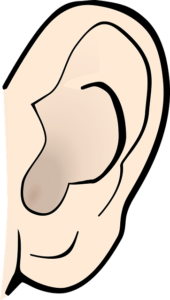Concerning Earwax Accumulation and Earwax Formation

Concerning Earwax Accumulation and Earwax Formation
Earwax is created within your ears to keep them clean and germ-free. It typically flows harmlessly out of your ears, but too much might accumulate and obstruct them.
Earwax is a frequent condition that may often be remedied with pharmacy ear drops.
If the pharmacy treatment does not work, contact your primary care physician. They may recommend flushing your ears there.
If these therapies are ineffective, your health care physician may recommend you to an ear, nose, and throat (ENT) department for expert care.
What factors can contribute to earwax buildup?
Some people get clogged ears regularly because they naturally create a lot of earwax.
Other variables that can contribute to excessive earwax production include:
earwax production that is naturally hard or dry
Ear canals that are too small or too hairy (the tube between the pinna and the eardrum)
elder age, when earwax dries out with age
bony growths on the ear canal’s outer surface
Earwax can build up if you often introduce anything into your ear canals, such as cotton swabs, earplugs, or hearing aids.

Earwax buildup symptoms
An accumulation of earwax in the ear might result in the following symptoms:
Earache
Hearing impairment
Tinnitus (hearing sounds from inside the body)
Itching in or near the ear
dizziness (a spinning sensation)
Infections of the ears
Once the additional earwax is removed, these symptoms usually improve.
What should you do if you believe your ear is blocked?
Never use your fingers, a cotton swab, or another item to remove earwax. This can cause harm to your ear and push the wax deeper down.
If the earwax is only causing moderate discomfort, you can try purchasing ear drops from your local drugstore. The drops may first make your hearing or symptoms worse before they improve. They can soften the earwax, allowing it to slide off independently.
Ear drops come in various flavours, including those with sodium bicarbonate, olive oil, or almond oil.
Ear drops, on the other hand, are not for everyone, and some may irritate the skin. Ear drops, for example, should not be used if you have a perforated eardrum (a hole or tear in the eardrum).
Consult your pharmacist to determine which product is best for you, and always read the package insert.
Should you make an appointment with your primary care doctor?
If your symptoms are very bothersome or ear drops haven’t improved after three to five days, consult your primary care physician or an independent ear doctor.
Your primary care physician or nurse practitioner will examine your ears to determine if they are clogged and may perform some simple hearing tests.
He may advise you to use the ear drops for a more extended period, or he may perform a simple operation known as ear irrigation to clear your ear canal.
If these treatments are ineffective, your primary care physician may refer you to the ENT department of the nearby hospital for more specialised therapies like micro-suction or ear flushing.
Earwax removal treatments
A variety of methods can accomplish earwax removal.
The primary treatments are as follows:
Ear drops – drops used several times a day for a few days to soften earwax and allow it to slide off on its own.
Ear irrigation is a quick and painless procedure that uses an electric pump to drain away from the wax from the ear.
Microsuction is a quick and painless operation involving sucking wax out of the ear with a device.
Ear debridement is cleaning your ear and scraping out the wax with a narrow device having a small bow on one end.
Not all of these treatments are suitable for all patients. Your pharmacist or doctor may advise you on which therapies are appropriate for you, as well as the risks and side effects linked with them.
Keeping earwax accumulation at bay.
Some people naturally tend to have earwax buildup in their ears, which may necessitate repeated treatment to eliminate if it becomes a problem.
It’s unclear whether there’s anything you can do to keep earwax from filling your ears, while some doctors advise using ear drops regularly to keep the wax soft.
Attempting to scrape away the earwax with your finger or an item pushed into your ear can aggravate the situation.
If earwax collects in your ears frequently, consult your doctor.





